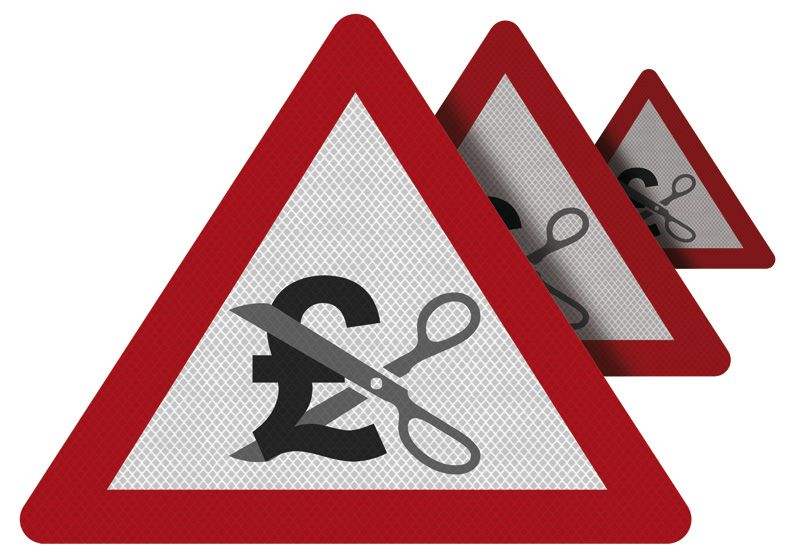Household Bills
Could these hacks help you save £6,000 a year?

The average UK household could save up to £5,950 a year, but research shows that savings rates across the population continue to decline. If you are looking to make a change, here are a few tips to get you started.
The average UK household has the potential to save up to £5,950 a year. That’s according to research by the Centre for Economics & Business Research (CEBR) on behalf of Post Office Money.
The figure is based on the amount of disposable income households have left after all their outgoings.
And the figure is predicted to increase to £6,170 by 2021, driven by a rise in incomes over the next three years.
However, research from the Money Charity found close to 10 million households have no savings, with a further 3.3 million households having less than £1,500.
People surveyed said cost of living, unexpected expenses around the home and prioritising paying off existing debts were the main reasons they couldn’t save more.
Where your money goes
Turning to the Post Office Money research, UK households spend £395 a week on housing, transport, leisure, clothing, footwear, homeware, food and household energy. The two biggest outgoings are housing (typically £98 a week) and transport (£80 a week).
Clothing, footwear and homeware are where most savings can be made, the study found, with frugal households spending 93% less than the average.
The table below outlines the key areas where UK households spend money:
| Average weekly household expenditure | |
|---|---|
| Housing | £98 per week |
| Transport | £80 per week |
| Leisure | £73 per week |
| Clothing, footwear and homeware | £64 per week |
| Food | £58 per week |
| Household energy | £22 per week |
Source: Post Office Money & CEBR
Top money saving tips
In a bid to get the UK to save more, Post Office Money asked a group of experts for their top tips:
Food
Jack Monroe, who started a blog about cooking on a budget called, suggests taking some time to do some basic meal prep during the week, which can help you to get the most out of the ingredients you have purchased and speed up making dinner.
“I chop onions, veg, and defrost frozen spinach on Sunday evenings and store in containers in the fridge. It makes adding veg to dinners quick and easy,” she said.
In order to be more economical with food spending, 25% of a sample of 2,011 UK adults surveyed by Opinium Research have avoided eating out, while 22% started making their own packed lunches.
Supermarket hacks are also great money-savers, with people switching to supermarket own brands or economy ranges, making lists to avoid over-spending and purchasing their groceries from the discount aisle.
Travel
Monica Stott, who blogs about weekend breaks and affordable adventures, suggests buying tickets in advance.
“Online prices can be cheaper just be sure to look at reviews, so you are purchasing from a genuine vendor; you can also sometimes get skip the queue tickets for the same price online,” she explained.
Meanwhile, research shows that UK adults try to spend money on holidays by doing the following:
- Choosing to holiday out of season
- Picking a holiday destination based on the available deals
- Searching online for the cheapest ways to buy foreign currency
- Opting for self-catering options
- Choosing hand-luggage only flights
Household bills and bargain hunting
Ricky Willis, who launched money-saving blog ‘Skint Dad‘, suggests getting a membership card or season ticket for local attractions.
“If you make regular visits, you’re likely to save money,” he said.
Post Office Money’s research found that UK adults cut their monthly bills by taking the following steps:
- Making an effort to reduce their household electric and gas use
- Cancelling entertainment packages
- Shopping around for cheaper alternatives for utilities
Clothing & Homeware
Kimberley Duran specialises in design and DIY. She says: “Consider simple upholstery projects like fitting a new seat cushion to a chair rather than spending money on a whole new piece of furniture.”
Meanwhile, UK families are trying to be frugal with their household spending by doing the following:
- Using coupons and discount vouchers
- Purchasing less clothing
- Buying items from discount stores
- Using cashback websites
- Repairing faulty items rather than replacing them
Personal Finances
Iona Bain, a personal finance blogger and journalist, suggests keeping a money diary to help you to stay on top of your finances.
“It will help you to keep track of any money you do retain through cost-cutting exercises,” she said.
Post Office Money’s research found that UK adults are already taking steps to manage their money better. They included:
- Looking for a more competitive insurance deal
- Changing savings or current accounts to get a better rate or benefit from benefits associated with these accounts
- Reducing credit balances to reduce interest payments
- Switching credit card providers to benefit from 0% interest deals